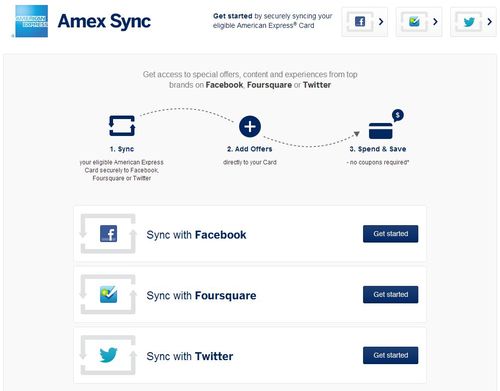
Before leaving the subject of , personalisation and virtualisation, there’s one last area that is worth delving into.
This one came up when I was working on my latest iteration of the way in which money is evolving, and I have the firm belief that the exchange of value digitally will be as, if not more, disruptive than the exchange of goods physically.
We saw early digital currencies forming many years ago.
For example, over a decade ago, there were many virtual currencies emerging for the internet age including CyberMoola, Cybercash, Digicash and PocketPass, with the most successful being Beenz (1998-2001) and Flooz (1999-2001).

These sites enjoyed brief but flawed success.
Interestingly, the main reason for failure is attributed to the fact that none of these sites had enough availability, usability or recognition to gain critical mass and therefore widespread adoption.
Since then we have seen other virtual currencies arise, specifically the Linden Dollar as part of the gaming world of Second Life. Again, these emerging digital systems failed. In this case, an additional layer emerged: lack of governance (the Linder Dollar failed because the developers did not regulate the managers of the currency).
The latest virtual currency is Bitcoin, which may or may not go the same way as the Linden Dollar, Beenz and Flooz.
The main difference with Bitcoin is that is has a regulatory structure – it is open sourced and transparent to all - whilst being fully digitally secure.
However, it still has to gain critical mass acceptance as a currency to buy and sell, and that’s where it’s major hurdle has yet to be overcome. Interestingly, in a paper reviewing Bitcoin by Reuben Grinberg of Yale Law School, there are several key inhibitors to virtual currencies success including:
- Improper usage
- Superior alternatives
- Government blockage
- Abandonment due to deflation
- Technology failures leading to theft or a loss of anonymity
One of the things this overlooks however is the gamification affect, which I have noted in several blogs:
- Money laundering in virtual worlds (November 2007)
- Zombie money in a chainsaw hell (November 2009)
- You should take Bitcoin seriously (September 2012)
- Virtual currencies will explode thanks to mobile games (November 2012)
A common theme through these blog entries is the gamification growth of the QQ coin in China, but now I note many other coins:
- Choccos from Korea’s Kakao Talk;
- Line coins, the mobile messaging coins from Line International;
- the Japanese social gaming firm DeNa’s coins;
- Facebook and Zynga credits;
- World of Warcraft and Diablo Gold;
and more.
Here’s a good reason why you should take note of these developments from TongYang Securities Internet Outlook 2013:
Chinese instant messenger Tencent QQ’s number of users have posted a CAGR of 25% over the past nine years. Its game platform has boosted annual sales by 63% and operating profit by 62% on average. Similarly, NHN’s mobile messenger LINE has seen users grow by 6mn per month in Japan and Southeast Asia, and should start to generate profit as a game and advertising platform, like “KakaoTalk.” In Japan’s mobile market, smartphone use is expected to grow strongly. Moreover, as its mobile game and advertising markets are 10x and 15x bigger than Korea’s, respectively, LINE’s success in Japan should allow NHN to secure a new growth driver to make up for stagnant domestic growth.
Add another dimension to the debate by looking at how much revenue firms are generating by gaming and the fact that this going global, and you need to take this seriously.
From the Wall Street Journal:
The global mobile-game market is expected to increase nearly fivefold from $3.77 billion in 2010 to $17.6 billion in 2015, according to the research arm of Tokyo-based Ichiyoshi Securities.
These gaming developments are branching out into social networks and platforms:
Gree, DeNA, Zynga and others are jostling to become the company that consolidates this expanding universe of mobile games around a central social network that connects game players with one another. Such networks allow players to send messages to each other, play against each other, or work in tandem to defeat a common game foe. They also help promote other games and offer a virtual currency that can be used for a variety of games within the platform.
And, at the point you have an accepted and trusted virtual currency in a massively multiplayer online game, you get to see adoption across platforms. That has yet to happen, but this could be down to the lack of adoption and critical mass, as per Beenz and Flooz. For example, I often talk about Zynga credits being a future currency, but Zynga lags the Japanese companies in converting game players into paying customers:
Gree generates $11.21 for every user who plays one of its games at least once a month, according to Macquarie Securities. The firm estimates that DeNA books $6.50 per month from its regular users. Zynga has 292 million regular users but generates just 33 cents per month from each.
The bottom-line is that these gaming worlds are viewed as peripheral because they have yet to emerge into the core world of you and I, but there is a core of serious players emerging to get in on this gaming.
These are not only the gaming firms themselves – DeNa and QQ being particularly noteworthy – and not only the platforms that some of these gaming firms exist upon – Apple and Facebook – but it is the core players themselves who are also getting interesting.
Just in the past month Amazon has announced virtual coins:
When Amazon Coins launches in May, we will be giving out tens of millions of dollars worth of Coins to customers to spend on Kindle Fire apps, games, or in-app items.
Whilst AMEX has launched tweet-to-pay:
to add to their facebook, foursquare and other services.

Note: AMEX really get this stuff
When Amazon and AMEX are playing in this space, something serious is happening.
In conclusion, the world has tried to create an alternative online currency since the inception of the internet. If it was not worth doing, then why would the world keep trying to do it?
So it is worth doing, and one day it will happen.
This means that in our world which is moving faster than many of us can think, any new virtual currency has a potential to be The Big Thing.
To be The Big Thing comes down to looking for three things to happen:
A virtual currency to become a serious player in value exchange;
A payment system to emerge to support this virtual currency which can be used on multiple platforms both inside and outside the core reason for the currency’s existence; and
An ecosystem of commerce to form around this structure, such that the currency is used as a de facto standard for purchasing and selling across the ecosystem.
Some of these elements are already in play – think of iTunes aggregation services or Amazon’s one-click. Therefore, although a core new payment system with velocity and volume has not yet made it onto the core banking radar, I am darned sure one will and it will do this in the very near future.
Chris M Skinner
Chris Skinner is best known as an independent commentator on the financial markets through his blog, TheFinanser.com, as author of the bestselling book Digital Bank, and Chair of the European networking forum the Financial Services Club. He has been voted one of the most influential people in banking by The Financial Brand (as well as one of the best blogs), a FinTech Titan (Next Bank), one of the Fintech Leaders you need to follow (City AM, Deluxe and Jax Finance), as well as one of the Top 40 most influential people in financial technology by the Wall Street Journal's Financial News. To learn more click here...

